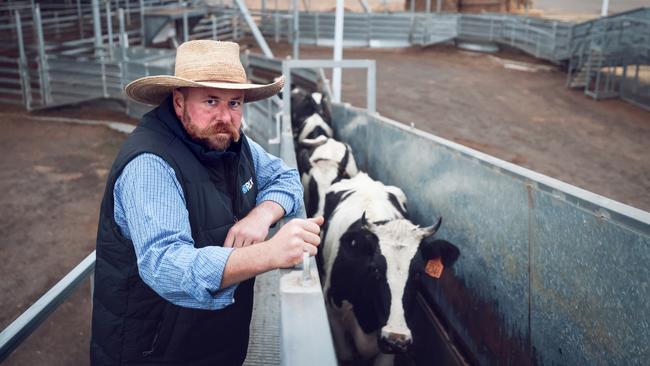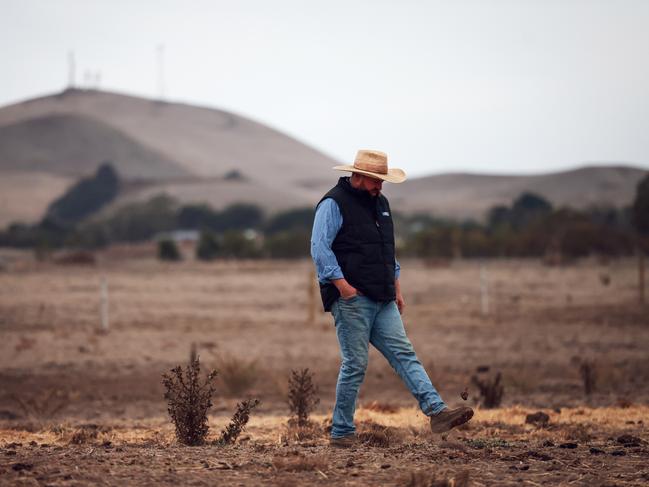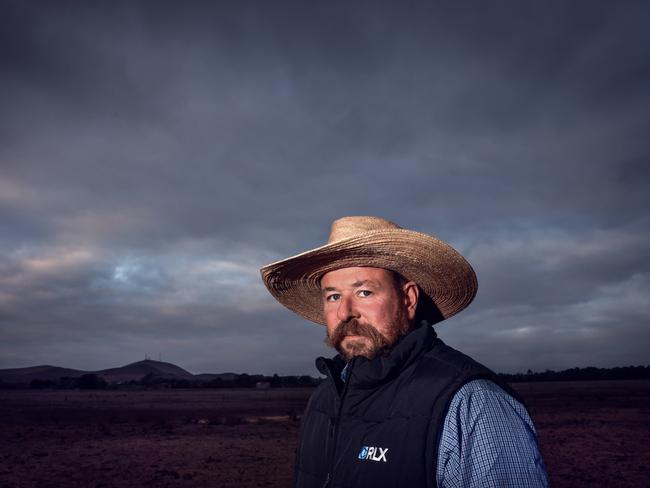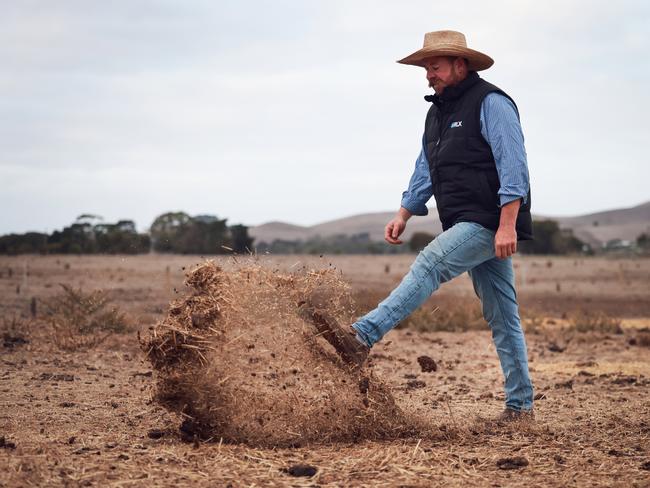‘Never seen anything like this’: Victorian drought set to drive up meat prices, experts warn
Victorian farmers are running out of water and feed for their livestock amid the longest dry spell on record — and now experts have warned the lack of rain is about to impact your grocery bill.

Victoria
Don't miss out on the headlines from Victoria. Followed categories will be added to My News.
Parts of Victoria have recorded their longest dry spell on record, with experts warning that ongoing drought conditions will likely drive up meat prices.
Bureau of Meteorology data reveals that some areas in the state’s west and north have been without water for up to 24 months.
For the past 18 months, many farmers have been importing feed for livestock and trucking in water.
However, with no rain forecasted, many are now mass selling livestock, which will lead to long-term price increases, according to Peter Homann, Elders National Livestock Manager.
“Victoria is the driest I’ve ever seen it, so we’ve been selling off livestock. We’ve been in sell mode for a while, and we are selling cattle much earlier than we normally would. There will be pressure on meat prices, and meat will get more expensive.”

He said that, in the short term, meat was coming from the north, but this buffer would only last a short while.
Bureau of Meteorology (BOM) Senior Climatologist Jonathan Pollock revealed there was little relief in future forecasts with low rainfall and higher than average temperatures predicted over winter.
“For the last 15 month period, much of South Australia’s agricultural areas have had lowest rainfall on record. That pattern extends into parts of Victoria’s west and south, and much of the rest of west.
“And looking ahead, there’s slightly increased chances of below average rainfall for parts of the north east.”
He added that temperatures would also be above average.

Jake Last, 37, a farmer in Mortlake said the dry was taking its toll.
“I’ve never seen anything like this,” he shares.
“A lot of people are out of water and have run out feed.
“It’s got to the point where it makes more business sense to sell the cattle rather than feed them.
“It’s not really viable when you’re paying $400 a tonne for hay.”
According to the BOM forecast rain is likely to be below average in parts of the southwest and southeast, the east, and much of the north.
There has also been lower than average rain in the city, however, with storage levels still strong, there are no current plans to bring in water restrictions.

Minister for Agriculture Ros Spence said she had met with farmers and local communities in South West Victoria “to hear first hand how the drought is affecting them, and we are continuing to closely monitor conditions across the state to ensure we’re offering tailored support to farmers when and where they need it.”
“We know that farmers in South West Victoria are doing it tough, which is why we’re supporting farmers with a $13.5 million Drought Support Package — 1,569 grants have been provided to primary producers to help upgrade farm water systems, install stock containment areas, and to purchase grain and fodder storage infrastructure.”


